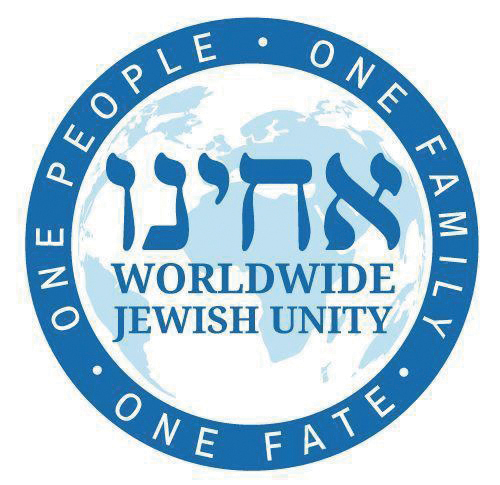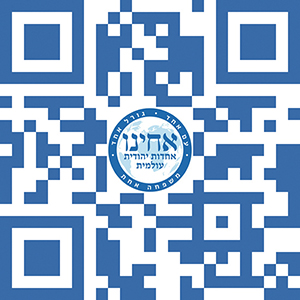
Why Bless Eisav?
Already in the womb, it was clear that Yaakov and Eisav were headed in very different directions. When they grew up, Eisav focused on hunting (and killing), while Yaakov studied in the tents of Shem and Ever. Rivkah understandably loved Yaakov; Yitzchak surprisingly loved Eisav.
Eventually, when Eisav married Hittite women, even Yitzchak was disappointed in him.1 Why, then, did Yitzchak decide to bless Eisav? If Yitzchak realized that Eisav was not the tzaddik he pretended to be, why did he still intend to give him the brachot?!
The Seforno answers by noting that Yitzchak’s first bracha (which he gave to who he thought was Eisav) conferred only physical bounty: “the dew of heaven and the fats of the earth, and much grain and wine.2 Yitzchak made no mention of Avraham’s legacy or the inheritance of the land of Israel (a central component of Hashem’s promises to Avraham and Avraham’s legacy).
Yitzchak included these elements, the “birkat Avraham,” only later in the parsha when he knew that he was blessing Yaakov: “May He give you the blessing of Avraham … to inherit the land… that God has given Avraham.”3
Why did Yitzchak divide his brachot this way?
The Seforno explains that Yitzchak realized who Eisav was and did not see him as the heir to Avraham’s legacy. He knew that Yaakov was his and Avraham’s true spiritual heir. Still, he sought to create a partnership between his two sons. He intended to bless Eisav with physical success and Yaakov with spiritual growth, hoping they would join forces and work together to build the Jewish people.
An Idea Before Its Time: Yaakov’s Brachot
Though Hashem had Rivkah subvert Yitzchak’s plan,4 and He completely rejected Eisav,5 Yitzchak’s intention to include both his children was not misguided. It was correct in principle, just before its time. Its time would come in the very next generation when Yaakov applied his father’s idea to his own children.
Though Yosef’s brothers hated him and sold him into slavery, eventually, in Parshat Vayigash, they were reunited in Mitzrayim, where the family’s survival hinged on Yosef’s support.
In Parshat Vayechi, Yaakov worked to unify his children before he died. He did this by emphasizing their mutual dependency and giving them all brachot.
When Yosef brought his sons to Yaakov to be blessed, Yaakov crossed his hands and put his right hand on Ephraim’s head. Though Menashe was the bechor (oldest), Yaakov wanted Ephraim to be (at least) an equal recipient of his brachot.6
After blessing his grandchildren, Yaakov gathered his children and blessed them all—together and separately. In addition to highlighting and reinforcing each child’s unique traits, Yaakov included them in each other’s brachot: “va’yevareich otam ish asher k’birchato beirach otam.”7
His message to them was that each was blessed with unique attributes that, when combined with the rest of the brothers, could facilitate the development and success of the Jewish people. None of them alone could carry on the avot’s legacy. They needed each other.8
From that point forward, all Jews remain part of the Jewish people. Even sinners are an integral part of our people.
A Source for Achdut
This is one of the bases of Jewish unity. We are meant to realize that our success hinges on working together—not just to defend ourselves but also to realize our joint mission in Hashem’s world. Even if we live our lives properly, if other Jews do not, we all lag behind.
Though we all know how important the ideas of arvut (mutual responsibility) and achdut (unity) are, we do not always sufficiently emphasize them. Before Sukkot, we were a divided and fractured people who were fighting with each other instead of working together. Many believe that we were attacked for this reason. Hashem does not support a divided people, and our enemies look to take advantage of this weakness.
The October 7 massacre and the subsequent attacks on and demonization of Jews worldwide have revived our sense of achdut. We face a common enemy, and we have banded together to fight.
The question is whether this achdut will last beyond the war. Has the attack reminded us that we are one family with a common fate and destiny that needs to work together, or will our achdut fade as soon as the enemy is defeated and the threats are averted?
Acheinu: WorldWide Jewish Unity
The Acheinu WorldWide Jewish Unity movement addresses this issue. It encourages and reinforces achdut efforts in each community around the world and internationalizes these efforts.
We encourage each individual to seek ways to repair, initiate and strengthen relationships with other Jews and each community to unify all Jews (of all types) and Jewish organizations. Though we will continue to be different and differ, we should emphasize that we are one family and view our differences from this perspective.
Acheinu internationalizes achdut efforts by connecting between Jews, Jewish communities and achdut efforts in more than 50 countries around the world. Initiatives like the Acheinu Song Compilation, Daily Tehillim and the Global Siyum offer the opportunity to sing, daven and learn as one people unified worldwide.
Those who went to Washington this week know how meaningful being in the presence of other Jews—especially those we do not yet know—is. We are meant to feel connected to all other Jews, to feel part of a global Jewish community. We live at a time when modern modes of communication make this possible, and Hashem has reminded us of its importance. Acheinu aims to help us realize the goal.
Now Is the Time
 Now is the time to build achdut. We are all speaking about the importance of working on achdut. Let’s make sure to turn our speech into action.
Now is the time to build achdut. We are all speaking about the importance of working on achdut. Let’s make sure to turn our speech into action.
Let’s bury the hatchet with family members and others we have issues with. Let’s strengthen our relationships with those we already know and build relationships with those we cross paths with but do not yet know personally.
Let’s take advantage of global initiatives like the Acheinu Global Siyum. Sign up at acheinu.world/siyum to learn a Mishna in memory of one of the October 7 victims and join us this Sunday for the Global Siyum program that features President Herzog, Senator Joe Lieberman, Natan Sharansky, chief rabbis, roshei yeshiva and global leaders. By doing so, you not only commemorate and elevate the holy souls of those murdered; you also connect with Jews worldwide and strengthen your and our sense of achdut.
By doing so, we will iy”H realize the vision of both Yitzchak and Yaakov Avinu and take our place as true heirs to their legacy, the legacy of the Jewish people.
For more information about the Acheinu Jewish WorldWide Unity Program and to sign up for initiatives, see acheinu.world.
Rav Reuven Taragin is the dean of Overseas Students at Yeshivat Hakotel and the educational director of World Mizrachi.
1 Bereishit 26:35.
2 27:28.
3 Bereishit 28:4.
4 Onkelos Bereishit 27:13.
5 Malachi 1:3.
6 See Ha’Emek Davar (48:14), who explains Yaakov’s intentions in a way similar to the Seforno’s explanation of Yitzchak’s intention.
7 Bereishit 49:28.
8 See Rashi, Ohr Hachayim, and Gur Aryeh to Bereishit 49:28.












